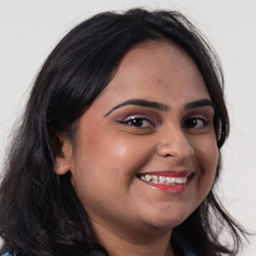GEP changes: Purpose of higher-ability programmes isn't to prepare these students for exams, says Chan Chun Sing


 PUBLISHED ONSeptember 10, 2024 6:05 AMByBhavya Rawat
PUBLISHED ONSeptember 10, 2024 6:05 AMByBhavya RawatThe proposed higher-ability programmes are not aimed at helping students excel in conventional examinations, said Minister for Education Chan Chun Sing in Parliament on Tuesday (Sept 10).
This was in response to a supplementary question posed by Ang Mo Kio GRC MP Darryl David.
Prime Minister Lawrence Wong, in his maiden National Day Rally speech on Aug 19, said that the current form of Gifted Education Programme (GEP) in primary schools will be revamped.
And going forward, every primary school will identify their own high-ability learners and have its own programmes to stretch these students in their areas of strength and interest.
In Parliament on Tuesday, David shared his thoughts about the new high-ability programmes, and hoped that they will not give these students an additional advantage for certain subjects during national examinations.
His question referenced Chan's earlier statement during the parliamentary sitting: that higher-ability programmes "aim to cultivate curiosity, creativity and a love for learning in schools" and "are not designed to help students perform better in mainstream examinations" or "introduce higher subject levels ahead of time".
Responding to David, Chan highlighted that students in programmes such as the GEP are already able to do well for conventional exams on their own, which allows them to qualify for such programmes in the first place.
"Our role is to provide them with more opportunities to stretch their abilities in different dimensions," he said.
"For example, if someone is selected for the English [Language] programme... we would like to expose them to different genres of literature and linguistic issues that challenge them might stretch their abilities."
"Likewise for mathematics, we may expose the student to different kinds of concepts, different kind of challenges, to see how they respond."
In August, the Ministry of Education (MOE) anounced that students will no longer need to transfer to specific schools to join a centralised GEP, and can instead take part in programmes for high-ability learners within their own schools, starting with the 2024 Primary one cohort.
Students will also be able to take after-school modules in specific subjects at designated schools near them, said the ministry.
Pupils can join or leave these programmes at multiple points between Primary four and six, instead of just in Primary four after one standardised test, which is the current case.
This approach aims to broaden opportunities for such pupils and move away from assessing them by a single yardstick, allowing them to explore strengths in specific subjects, added MOE.
Chan added in his parliamentary response that with the implementation of the revamped GEP, MOE wishes to ensure students do not feel pressured to remain in modules they find unsuitable or to overperform in every aspect of their academics just because they have been chosen for the programme.
"Let's help our children understand and appreciate their diverse abilities and find confidence in developing those abilities so that in time to come, they can make best use of [them] to contribute to Singapore," he said.
For more original AsiaOne articles, visit here.